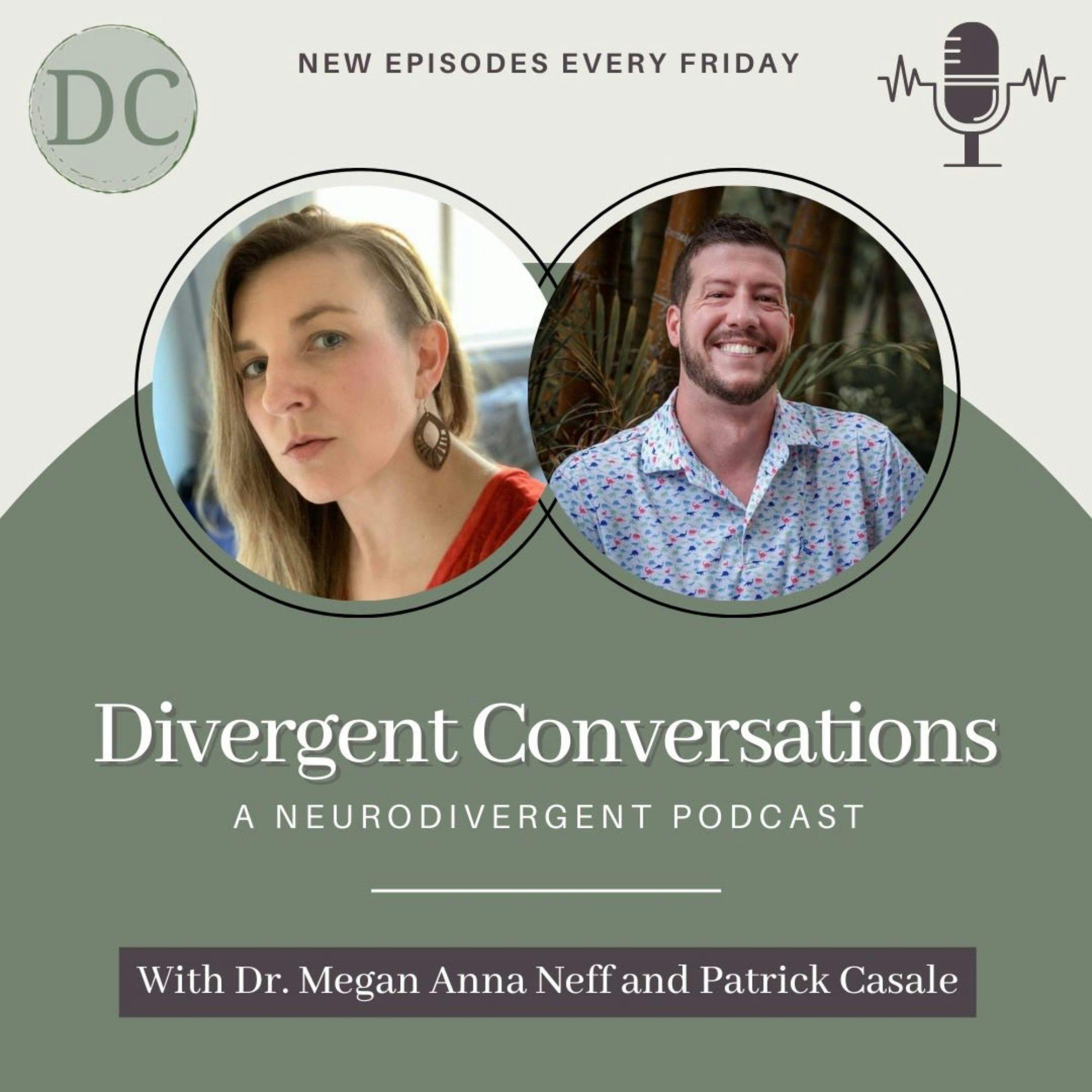Episode 11: Sensory Overload and Social Engagement — The Autistic Experience in Group Settings
Description
Socializing in groups can feel exhausting and often adds an entirely different level of complexity to the sensory experience and challenges for autistic individuals.
Patrick Casale, an AuDHD mental health therapist, shared his thought processes and some of the questions that run through his head when in group conversations, such as, "When do I interrupt? When do I not? When do I jump in? When do I not? When do I stay quiet? When do I avoid adding commentary?"
Dr. Neff shared that she shows up differently in conversations with people one-on-one than in group settings, and gave the example that in her one-on-one conversations with Patrick during the podcast episodes, her "analytical brain is able to pretty much go offline" and she gets immersed in the conversation, but said that she can very rarely do that in groups.
In this episode, Patrick Casale and Dr. Megan Anna Neff, two AuDHD mental health professionals, share their experiences around communication in various social settings.
Top 3 reasons to listen to the entire episode:
Understand what tracking is and how it plays a role in social interactions and regulation for autistic individuals.
Identify ways to reduce stress and overwhelm that is related to social interactions and sensory overload in group settings.
Learn how to balance the personal needs of autistic individuals with the needs of other members of their inner circle who are allistic.
It's important to find ways to support mental well-being through the struggles of emotional overwhelm and sensory overload that many autistic individuals face on a daily basis. Social interactions and experiences can be different for everyone, so we encourage you to make the effort to find ways to do restorative self-care and prioritize social activities that align with your values and needs.
Transcript
PATRICK CASALE: Hey, everyone, you are listening to the Divergent Conversations Podcast. We are two neurodivergent mental health professionals in a neurotypical world. I'm Patrick Casale.
MEGAN NEFF: And I'm Dr. Neff.
PATRICK CASALE: And during these episodes, we do talk about sensitive subjects, mental health, and there are some conversations that can certainly feel a bit overwhelming. So, we do just want to use that disclosure and disclaimer before jumping in. And thanks for listening.
DR: MEGAN NEFF: So, Patrick, I kind of thought we could actually pick up today where we left off last week. And by left off, I mean, actually, what happened after we hit the stop recording button.
PATRICK CASALE: Yeah. So, last week, we recorded with Thomas Hensley. And we were experiencing things in the moment while recording that you and I were talking about afterwards. And I know you were thinking about that throughout the week, and wanted to talk more about what was actually happening, and how you were experiencing that conversation, and vice versa. So, what was coming up?
DR: MEGAN NEFF: Yeah, yeah. Before I answer that, I just kind of want to do a bird eye commentary as I do. One thing I've noticed… so we have now launched and we have a few episodes out, and we're getting feedback, and you and I have recorded, this is our 10th episode. One thing I was reflecting on that I think we're doing that's, A, pretty vulnerable, and I think we both named that but B, I think what has the potential to be really helpful for folks is we are bringing our lived experience and then we're also kind of analyzing it or putting it in a frame from also being mental health therapists. But what we're also doing, this is the part that feels more vulnerable is in the moment processing.
And this is actually my favorite kind of therapy because it's so raw, it's so powerful. This is happening for me now. And I think we're able to talk about it in a way that's both centered, like centered in our experience, but also decentered. And by decentered, I mean, bringing, oh, this is interesting, from like a therapeutic psychological perspective.
So, that's the bird's
More Episodes
ADHD often brings unique challenges with impulsive behaviors which can make everyday interactions and tasks more complex. In an attempt to better understand the ways ADHD can present in daily life, this episode uses the DSM-5 diagnostic criteria as a framework for discussion—this is not an...
Published 06/14/24
Published 06/14/24
ADHD hyperactive traits are often misunderstood and the DSM-5’s portrayal of this type is heavily geared toward children and adolescents, which can make it harder to understand and address in adulthood. In an attempt to better understand the ways ADHD can present in daily life, this episode uses...
Published 06/07/24


